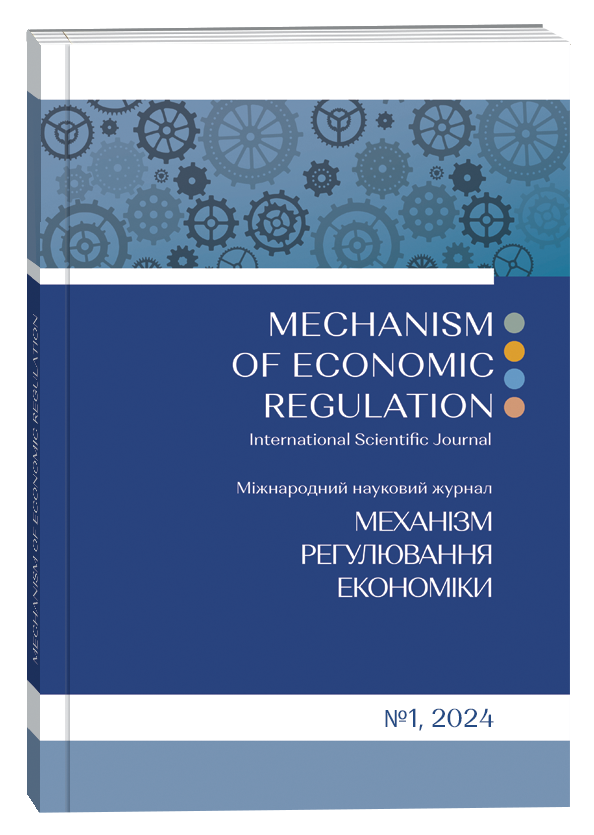INFLUENCE OF ARTIFICIAL INTELLIGENCE ON BUSINESS DECISION-MAKING
Abstract
The paper delves into the influence of artificial intelligence (AI) on business decision-making. By examining this phenomenon's technical, strategic, and ethical dimensions, the study seeks to unravel the implications that artificial intelligence integration brings to decision-making. The study conducted a comprehensive analysis to investigate the perceptions and experiences of individuals regarding integrating artificial intelligence in business decision-making. The study involved a detailed examination of demographic characteristics, artificial intelligence awareness, implementation status, perceived impact on decision-making speed and accuracy and ethical considerations related to bias in artificial intelligence-driven decision-making. The findings show that the gender and age distribution of respondents influence the perception and use of artificial intelligence in business decision-making. And artificial intelligence-driven decisions are dominant in the healthcare sector. Furthermore, artificial intelligence awareness and implementation indicated a generally positive outlook, with significant acknowledgement and familiarity among respondents. There is a positive perception of artificial intelligence making decisions faster with a positive contribution to the accuracy of business decisions. However, there is a record of some biases in artificial intelligence-driven decision-making. This highlights a significant concern in the fair and equitable application of artificial intelligence algorithms. This shows the importance of addressing biases to ensure ethical decision-making. The hypothesis testing sought to ascertain whether the incorporation of artificial intelligence is contingent on the accuracy of business decisions. The chi-square test results indicated insufficient evidence to propose a noteworthy relationship between the integration of artificial intelligence and decision accuracy. This implies that organizations should explore additional factors influencing decision accuracy, recognizing that artificial intelligence integration alone may not be the sole determinant.
References
Banerji, J., Kundu, K., Alam, P. A. (2020). An empirical investigation into the influence of behavioral biases on investment behavior. SCMS Journal of Indian Management, vol. 17(1), pp. 81–98.
Dagnino, G. B., Picone, P. M., Ferrigno, G. (2021). Temporary competitive advantage: a state‐of‐the‐art literature review and research directions. International Journal of Management Reviews, vol. 23(1), pp. 85–115.
Davenport, T. H., Harris, J., Shapiro, J. (2010). Competing on talent analytics. Harvard business review, vol. 88(10), pp. 52–58.
Eberhard, K. (2023). The effects of visualization on judgment and decision-making: a systematic literature review. Management Review Quarterly, vol. 73(1), pp. 167–214.
Green, S., McKinney, Jr E., Heppard, K., Garcia, L. (2018). Big Data, digital demand and decision-making. International Journal of Accounting & Information Management, vol. 26(4), pp. 541–555.
Joseph, J., Gaba, V. (2020). Organizational structure, information processing, and decision-making: A retrospective and road map for research. Academy of Management Annals, vol. 14(1), pp. 267–302.
Kartini, K., Nahda, K. (2021). Behavioral biases on investment decision: A case study in Indonesia. The Journal of Asian Finance, Economics and Business, vol. 8(3), pp. 1231–1240.
Kahneman, D., Tversky, A. (1979). Prospect Theory: An Analysis of Decision under Risk. Econometrica, vol. 47(2), pp. 263–291.
Kumar, A., Mangla, S. K., Luthra, S., Rana, N. P., Dwivedi, Y. K. (2018). Predicting changing pattern: building model for consumer decision making in digital market. Journal of Enterprise Information Management, vol. 31(5), pp. 674–703.
Mann, B. J. S., Sahni, S. K. (2019). Identifying the relationship between cultural dimensions and consumer decision making styles. Business & Social Sciences Journal, vol. 4(1), pp. 31–69.
Mökander, J., Morley, J., Taddeo, M., Floridi, L. (2021). Ethics-based auditing of automated decision-making systems: Nature, scope, and limitations. Science and Engineering Ethics, vol. 27(4), p. 44.
Nazarov, A. S., Mitina, O. V. (2023). Psychological foundations of the moral qualities of a leader in decision-making. European Journal of Interdisciplinary Research and Development, vol. 11, pp. 213–217.
Shannon B. N., McGee, Z. A., Jones, B. D. (2019). Bounded rationality and cognitive limits in political decision making. Oxford Research Encyclopedia of Politics.
Sugiarto, I. (2023). Strategic financial intelligence in the digital age: harnessing advanced data analytics for informed decision-making amidst complex business landscapes. International journal of economic literature, vol. 1(3), pp. 293–304.
Sydelko, P., Midgley, G., Espinosa, A. (2021). Designing interagency responses to wicked problems: Creating a common, cross-agency understanding. European Journal of Operational Research, vol. 294(1), pp. 250–263.
Wakker, P. P. (2023). The correct formula of 1979 prospect theory for multiple outcomes. Theory and Decision, vol. 94(2), pp. 183–187.
Zhou, S. S., Zhou, A. J., Feng, J., Jiang, S. (2019). Dynamic capabilities and organizational performance: The mediating role of innovation. Journal of Management & Organization, vol. 25(5), pp. 731–747.
Stone, M., Aravopoulou, E., Ekinci, Y., Evans, G., Hobbs, M., Labib, A., ... & Machtynger, L. (2020). Artificial intelligence (AI) in strategic marketing decision-making: a research agenda. The Bottom Line, vol. 33(2), pp. 183–200.
Benbya, H., Davenport, T. H., Pachidi, S. (2020). Artificial intelligence in organizations: Current state and future opportunities. MIS Quarterly Executive, vol. 19(4).
Schlögl, S., Postulka, C., Bernsteiner, R., Ploder, C. (2019). Artificial intelligence tool penetration in business: Adoption, challenges and fears. Knowledge Management in Organizations: 14th International Conference, KMO 2019, Zamora, Spain, July 15–18, 2019, Proceedings 14. Springer International Publishing, pp. 259–270.
Rodgers, W., Murray, J. M., Stefanidis, A., Degbey, W. Y., Tarba, S. Y. (2023). An artificial intelligence algorithmic approach to ethical decision-making in human resource management processes. Human Resource Management Review, vol. 33(1), 100925.
Olan, F., Arakpogun, E. O., Suklan, J., Nakpodia, F., Damij, N., Jayawickrama, U. (2022). Artificial intelligence and knowledge sharing: Contributing factors to organizational performance. Journal of Business Research, vol. 145, pp. 605–615.
Saha, G. C., Eni, L. N., Saha, H., Parida, P. K., Rathinavelu, R., Jain, S. K., Haldar, B. (2023) Artificial Intelligence in Pharmaceutical Manufacturing: Enhancing Quality Control and Decision Making. Rivista Italiana di Filosofia Analitica Junior, vol. 14(2), p. 2023.


